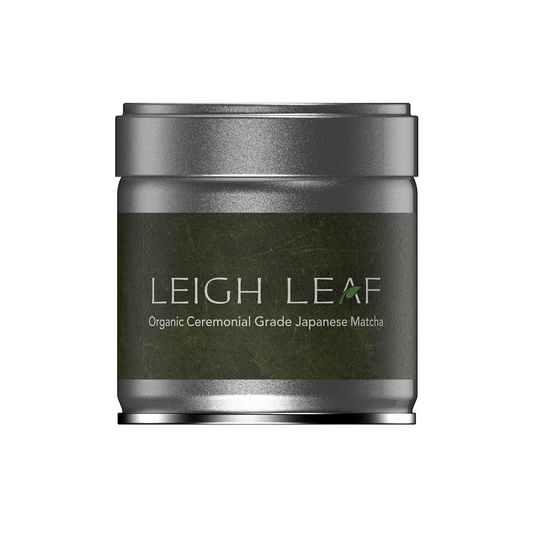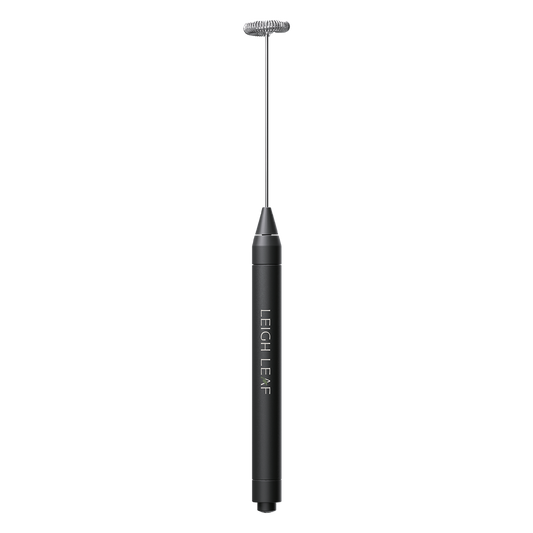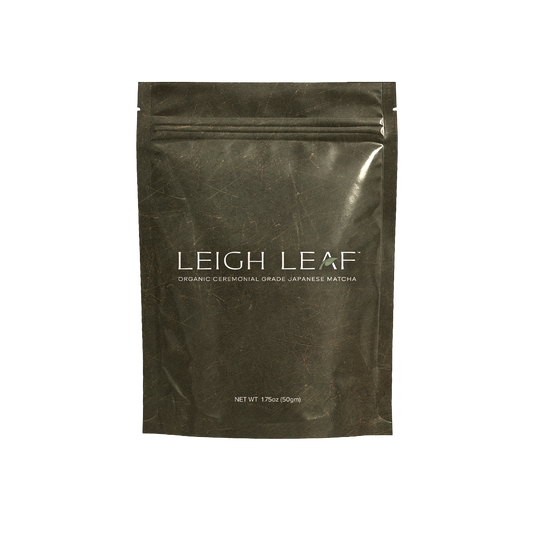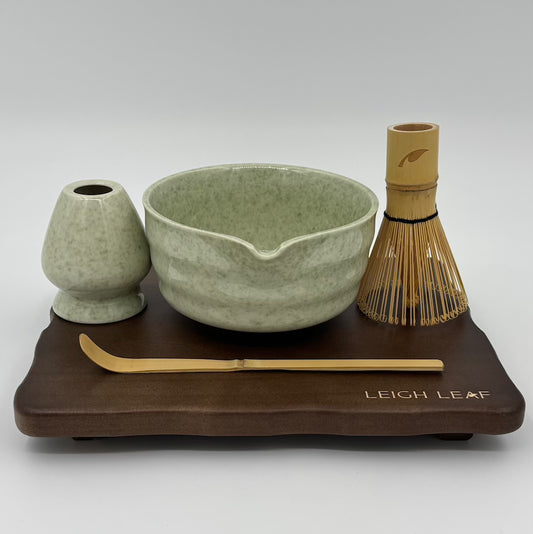
Kosher Matcha - The Ultimate Guide
Share
In exquisite teas, "Kosher Matcha" stands as a vibrant and flavorful contender. This article delves into the essence of Kosher Matcha - The Ultimate Guide, exploring its intricacies, benefits, and the importance of obtaining kosher certification for Japanese tea.
Table of content
What is Matcha?
Powdered green tea made from shade-grown tea leaves is called Matcha. Matcha is grown and harvested by covering the tea plants with shade cloths several weeks before harvest. The chlorophyll content of the leaves increases as a result of this shading.
After harvesting, the leaves are dried, steamed, and then ground into a fine powder using a stone grinder. With hot water and matcha powder, you can make a frothy, vibrant green tea. In addition to its unique flavor and rich umami taste, Matcha is also known for its high levels of antioxidants.
As well as being consumed as a beverage, Matcha is also used in various culinary applications, including desserts, lattes, and savory dishes.
What is Kosher?
To comprehend the significance of "kosher matcha," one must first understand what it means to be kosher. In the realm of dietary laws in Judaism, kosher refers to food and beverages that adhere to specific standards and regulations. These standards encompass the preparation, ingredients, and processing methods, ensuring that the product aligns with Jewish dietary laws.
What is Kosher Tea?
Now that we've established the groundwork for Kosher let's zero in on the realm of Kosher tea. Kosher tea extends beyond a mere beverage; it embodies a commitment to meeting the stringent requirements set forth by Jewish dietary laws. Tea, in general, is considered kosher, but the devil lies in the details. To be genuinely kosher, every component and step in the tea-making process must align with kosher standards.
Is Organic Tea Kosher?
A common question arises regarding the kosher status of organic tea. The answer lies in understanding that kosher certification doesn't solely hinge on whether the tea is organic or not. While organic matcha practices are commendable, they don't inherently make a product kosher. The kosher certification process involves a comprehensive assessment of each ingredient, ensuring they comply with kosher laws.
Why Should You Get Kosher Certification?
There is more to kosher certification than just a label; it represents a commitment to quality and adherence to specific guidelines. When it comes to tea, obtaining kosher certification assures consumers of the product's purity and suitability for a kosher diet. The certification process involves thorough inspections, ensuring that every aspect of the tea production aligns with kosher guidelines.
How Do You Import Japanese Tea with Kosher Certification?
Tea enthusiasts seeking Japanese tea with kosher certification may find the process challenging. However, it's a journey worth undertaking for those who prioritize the intersection of quality and tradition.
Does Matcha Powder Have to Be Kosher?
Matcha's appeal lies not only in its vibrant green hue but also in its versatility. For those wondering if matcha powder must be kosher, the answer is a resounding yes. Matcha powder, derived from specially grown and processed green matcha powder tea leaves, must adhere to strict kosher standards to be considered genuinely kosher.
What Tea is Kosher?
Tea, in its purest form, is kosher. However, it is important to dig deeper into the specifics. Still, it's essential to scrutinize the production process and ensure that no non-kosher ingredients or practices are involved.
Is Matcha Tea Kosher?
The kosher status of matcha tea is a recurring query among tea enthusiasts. To answer definitively, matcha tea can indeed be kosher, provided it adheres to strict kosher standards. The tea must be produced with meticulous attention to detail, ensuring that every step in the process aligns with kosher dietary laws.
Want to Buy Kosher Matcha?
For those eager to savor the richness of kosher matcha powder, the quest to find a reliable source is paramount. Choosing a reputable supplier ensures not only kosher compliance but also the quality of the food.
Is All Matcha Powder Kosher?
While matcha powder is celebrated for its culinary versatility, not all matcha powders are inherently kosher. It boils down to the production process and the strict adherence to kosher standards. Discerning consumers must seek out matcha powders that proudly bear kosher certification, ensuring seamless integration into a kosher diet.
What Is the Best Place to Buy Matcha Online?
Discovering the finest Matcha online is important, and it's essential to choose from reputable brands like Leigh Leaf to purchase and savor Matcha. Our ceremonial Matcha adheres to stringent quality standards, ensuring the delivery of premium organic matcha powder. Experience the goodness of organic matcha tea with our matcha powder.
If you have additional questions about Matcha, explore the Leigh Leaf blog section to learn more. Alternatively, feel free to contact our expert support team through our contact form, and we'll gladly help you.
In conclusion, the world of "Kosher Matcha" unveils a fascinating interplay between tradition, quality, and dietary laws. From understanding the fundamentals of kosher to exploring the intricacies of matcha production, the journey is as enriching as the tea itself. Whether you're a seasoned tea enthusiast or a newcomer to the world of kosher teas, embracing the nuances of "Kosher Matcha" promises a flavorful and culturally rich experience.
Frequently Asked Questions
Are All Plant-based Products Kosher?
The kosher status of plant-based products hinges on various factors, including the source of ingredients and the manufacturing process. While plant-based products can be kosher, it's imperative to verify their kosher certification to ensure compliance with dietary laws.
Is Matcha Tea Kosher?
The kosher status of matcha tea is contingent on its adherence to stringent kosher standards throughout the production process. Consumers seeking kosher Matcha should prioritize products with explicit kosher certification, ensuring a delightful and permissible tea-drinking experience.
Related Article:




